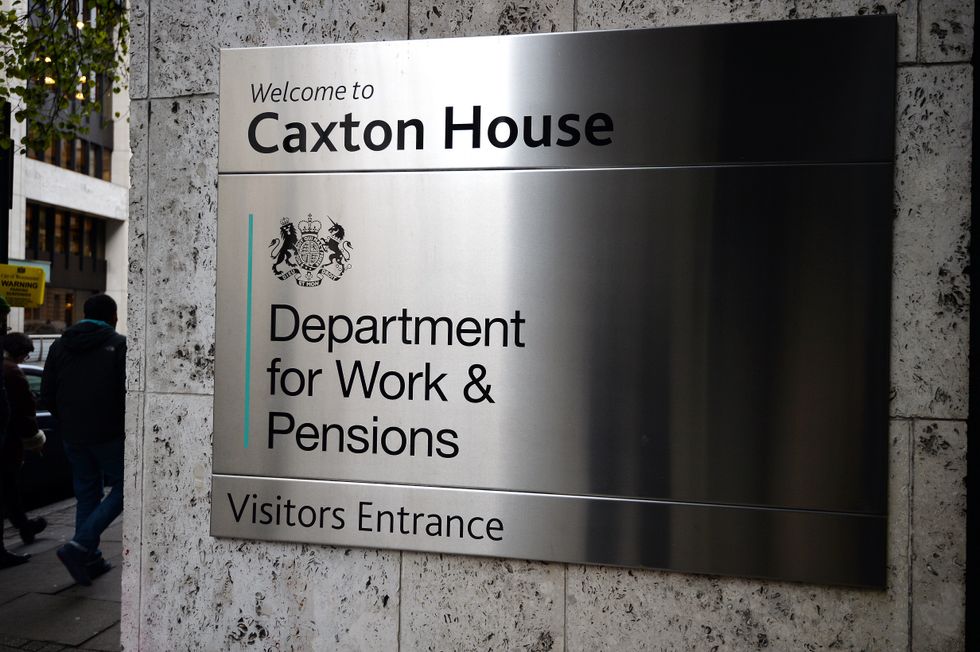Universal Credit payments rise by 6.7 per cent from today – but changes ‘punishing’ claimants
New rules to Universal Credit could impact claimants
Benefit payment rates are increasing but the DWP is still under fire for the stricter sanction regime under Jeremy Hunt
Don't Miss
Most Read
Trending on GB News
Universal Credit payments have risen by 6.7 per cent from today but claimants are being “punished” due to changes introduced by the Government.
Households on the Department for Work and Pensions (DWP) benefit could get more than £617 a month with this rate hike but research suggests thousands are at risk of missing out on this benefit boost due to strict new rules.
A report from the Institute for Public Policy Research (IPPR) has recommended reforms to the benefit system to address poverty and incentivise work.
According to the think tank, the current DWP benefit system is “failing against its own objectives” to get people into the workforce while talking inequality.
Last year, Chancellor Jeremy Hunt outlined plans to tackle announced a “tougher” sanctions regime as part of its new Back to Work Plan.
Claimants of Universal Credit who fail to comply with conditions imposed on them by job centres could lose their entitlement to the benefit.
Do you have a money story you’d like to share? Get in touch by emailing money@gbnews.uk.

Universal Credit claimants face tougher sanctions under changed DWP rules
GETTY
Among the changes as part of this plan include mandatory work placements, tracking attendance at job interviews and targeted case reviews to stop fraud.
Professor Ruth Patrick, from the University of York’s School for Business and Society and co-author of the report, explained: “Our social security system is failing against its own objectives.
“Rather than protecting people from poverty, and supporting people to enter and progress in work, it punishes those it is supposed to support, and - by its very design - entrenches poverty and insecurity.
“The Government must act fast to address this, and our costed proposals, developed in partnership with people with lived experiences of social security, would be a very good place to start.”
The report is urging the Government to increasing the core entitlement for all households on Universal Credit by £50 a month, with an equivalent for those on legacy benefits.
This would reportedly lift 350,000 people out of poverty, according to the IPPR. The think tank is also pushing for the two-child limit and benefit cap to be removed.
During the latest Budget, Mr Hunt outlined other changes to Universal Credit to assist claimants struggling financially but did not introduce the above proposals.
How have Universal Credit rules changed?
The DWP is enforcing stricter benefit sanctions on claimants. This will affect recipients who are able to work but refuse to engage with the Jobcentre or take work offered to them.
Benefit claimants who continue to refuse to engage with the Jobcentre, attend job interviews or job fairs sufficiently could see their claim closed after 6 months.
Claims will be closed of individuals who are solely eligible for the standard allowance which means they are not receiving additional child, housing or disability Universal Credit payments.
As such, parents claiming the child element and receiving additional benefits like free school meals are not at risk of falling foul of this measure and will not be affected.
Similarly, disabled claimants in receipt of the disability element of Universal Credit and receiving any additional benefits will not be impacted by this measure.
LATEST DEVELOPMENTS:

Universal Credit and other DWP payments have been awarded a 6.7 per cent
PAFurthermore, the DWP is now investigating positive claims of disengaged claimants after eight-weeks through the existing Targeted Case Review.
Last month, the Chancellor confirmed the maximum time someone on Universal Credit has to repay a “budgeting advance” would be increased from 12 to 24 months from December 2024.
A DWP spokesperson told GB News: “We are providing £104billion in cost of living support worth on average £3,700 per household, including investing over £2billion into the Household Support Fund to help those in most need – and almost £800million has been paid out to families with children so far.
“Since 2010 there are 1.7 million fewer people living in absolute poverty, and we know work is the best route out of poverty – so we’re going even further, raising the National Living Wage, cutting National Insurance, curbing inflation and investing billions through our Back to Work Plan to break down barriers to work so even more people can secure long-term financial security.”
How much is Universal Credit standard allowance now?
Universal Credit is made up of a standard allowance plus extra amounts a person may be eligible for. Single claimants under the age of 25 will see their standard allowance rate rise from £291.11 to £311.68 a month, while those over 25 will get £393.45 per month up from £368.74.
Joint recipients on Universal Credit who are both under 25 are now eligible for a standard allowance of £458.51 a month, but if one or both are over 25, they get £617.60 monthly.
If a claimant has children, they will be able to claim more from the DWP with the rate varying depending on how many dependents they have. Parents with a disabled child will also be entitled to additional support from the Government.








